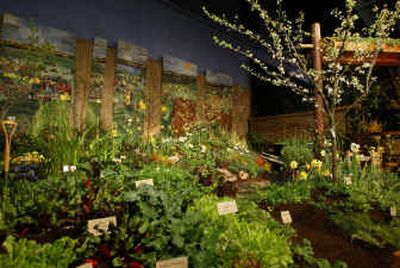Homeless, poor youths grow award-winning garden

SEATTLE – As a homeless youth, Nick Plesha’s interaction with urban landscape was centered only on finding a place in it to sleep. Now his work in horticulture is gaining attention – and awards.
Plesha’s labors helped Seattle Youth Garden Works capture a “Best of Show” gold medal at the 2005 Northwest Flower and Garden show, a prestigious event in the garden world that draws 80,000 people annually and is the third-largest show of its type in the country.
“I was actually pretty surprised,” 18-year-old Plesha said Wednesday, the opening day of the five-day event held at the Washington State Convention and Trade Center. “We were up against some big competition.”
Garden Works is a nonprofit group that offers homeless and impoverished kids an opportunity to foster their gardening skills. It was the group’s first-ever entry, and show organizers were surprised it won the Founder’s Cup, beating out 24 other show gardens, some from the region’s largest professional nurseries and landscape architecture firms.
“I can’t remember anything like this happening before,” said Alice Kelly, who founded the show 17 years ago with her husband, Duane. “They created a wonderful garden.”
Garden Works is sponsored by the Church Council of Greater Seattle. It annually accepts 60 people between 14 and 22 years old who have struggled with poverty and homelessness.
Needy youth learn to grow, market and sell plants cultivated by the organization. A one-year internship is also offered to some like Plesha, a high school dropout who ended up homeless after his mother “disappeared one day.”
Plesha learned about Garden Works while studying for his GED through a youth services organization. He thought it would be a way to make a little money, but gardening soon became more appealing to Plesha – who’s nicknamed “Squirrel.”
“You find that you can be useful,” he said while people crowded around the urban vegetable garden complete with corn, carrots, fennel, European pears, primroses and dozens of other plants.
“You get job skills, life skills.”